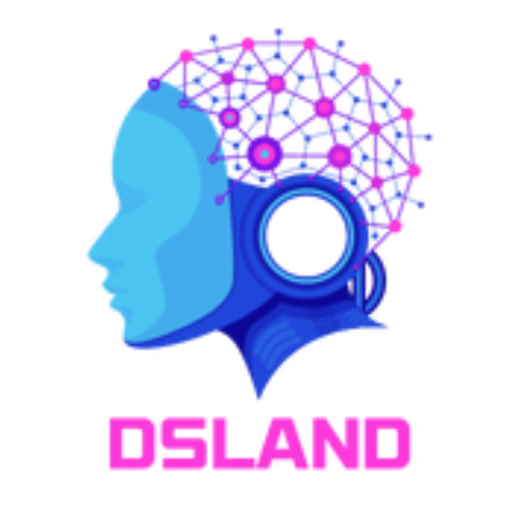Transforming Depression Care: Hong Kong AI Uses Eyes – 2024
As we enter 2024, a groundbreaking approach to mental health treatment has emerged from Hong Kong, promising to revolutionize how we perceive and manage depression. Transforming depression care: Hong Kong AI uses eyes – 2024. This innovative method leverages artificial intelligence and eye-tracking technology to deliver precise and personalized depression care.
Table of Contents
- Introduction
- The Need for Innovation in Depression Care
- How AI Uses Eye Movements
- Benefits of AI-Driven Depression Care
- Potential Challenges and Solutions
- The Future of Mental Health Care
- Conclusion
Introduction
With mental health issues on the rise globally, effective and timely interventions have never been more crucial. In 2024, Hong Kong is spearheading a transformative approach to depression care. Utilizing advanced AI and eye-tracking technology, the city is paving the way for enhancing patient outcomes significantly.
The Need for Innovation in Depression Care
Traditional methods of diagnosing and managing depression often rely heavily on patient self-reporting and generic treatment plans. These approaches can be limiting, often overlooking the nuanced and diverse nature of individual experiences of depression. Transforming depression care: Hong Kong AI uses eyes – 2024, aims to address these limitations by offering a more tailored, insightful approach to diagnosis and treatment.
Current Challenges
- Reliance on self-reported symptoms.
- Variable accuracy in diagnosing depression.
- Lack of personalized treatment plans.
- Stigma around mental health leading to underreporting.
How AI Uses Eye Movements
The innovation of transforming depression care: Hong Kong AI uses eyes – 2024, lies in its unique application of artificial intelligence to eye-tracking technology. Researchers have discovered that various mental health conditions, including depression, significantly affect eye movement patterns.
The Science Behind the Technology
AI algorithms analyze specific patterns in eye movements to identify markers that correlate with depressive states. These markers include:
- Saccadic eye movements: Rapid shifts in gaze direction.
- Pupil dilation: Changes in pupil size in response to emotional stimuli.
- Fixation duration: How long a person focuses on a particular object or area.
By collating and analyzing this data, AI can provide a more objective and quantifiable measure of a patient’s mental state.
Benefits of AI-Driven Depression Care
The integration of AI with eye-tracking technology brings numerous benefits. Transforming depression care: Hong Kong AI uses eyes – 2024 not only improves diagnostic accuracy but also enhances the personalization of treatment plans.
Enhanced Diagnostic Accuracy
One of the primary advantages is the enhanced accuracy in diagnosing depression. Traditional diagnostic methods often involve subjective assessments, which can lead to misdiagnosis. The objectivity provided by AI eye-tracking methods reduces the margin for error significantly.
Personalized Treatment Plans
AI’s ability to analyze individual differences in eye movement patterns allows for the creation of highly personalized treatment plans. This approach tailors interventions to each patient’s unique needs, potentially leading to better treatment outcomes.
Early Detection and Intervention
Early detection is critical in managing depression effectively. The innovative AI technology in Hong Kong can identify subtle changes in eye movements that might be early indicators of depressive states. This allows for timely intervention, addressing issues before they escalate.
Potential Challenges and Solutions
While the benefits are considerable, the integration of AI and eye-tracking technology in depression care also poses certain challenges.
Data Privacy and Security
One of the major concerns is data privacy. The sensitive nature of mental health data necessitates robust security measures. Ensuring patient confidentiality and data protection is paramount. Advanced encryption methods and strict data governance policies need to be implemented.
Technological Access
Ensuring widespread access to such advanced technology could be a challenge, particularly in under-resourced settings. Collaborative efforts between governments, tech companies, and healthcare institutions are essential to bridge this gap and make this innovative approach accessible to all who need it.
Training and Adaptation
Healthcare providers will require training to effectively integrate this new technology into their practice. Educational programs and workshops can equip clinicians with the necessary skills to harness AI for better depression care.
The Future of Mental Health Care
The promise of transforming depression care: Hong Kong AI uses eyes – 2024 is a glimpse into the future of mental health care. The successful implementation of this technology could set a precedent for other regions and countries to follow. This evolution in depression care underscores the potential for AI to drive significant improvements in mental health treatment globally.
Broader Applications of AI in Mental Health
This pioneering method can potentially be expanded to address other mental health disorders. Anxiety, PTSD, and even schizophrenia might benefit from similar AI-driven diagnostic and treatment approaches, providing a comprehensive suite of tools for mental health practitioners.
International Collaboration
The success of this initiative in Hong Kong could foster international collaboration. Sharing insights and data across borders can enhance the global mental health landscape, ensuring that innovative technologies benefit as many people as possible, regardless of geographical location.
Conclusion
Transforming depression care: Hong Kong AI uses eyes – 2024 stands at the forefront of a new era in mental health treatment. By utilizing advanced AI and eye-tracking technology, Hong Kong is setting a benchmark for precision and personalization in depression care. This innovative approach holds immense promise for improving patient outcomes and heralds a brighter, more hopeful future for mental health care worldwide.
Blog Search
ChatGPT
